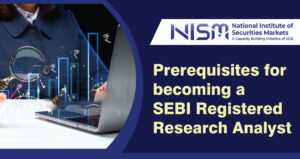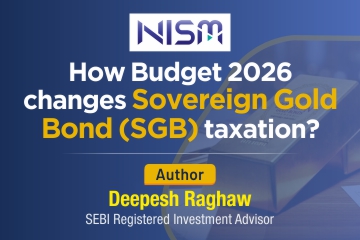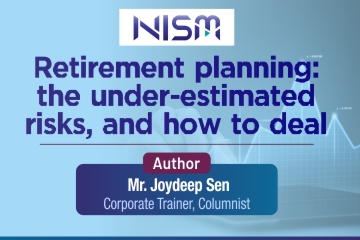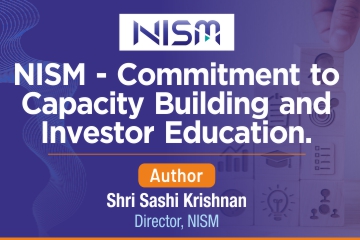For the purpose of grant of Certificate of Registration, the applicants are required to be certified and qualified as per the Regulation 7 of the SEBI RA Regulations, 2014. They are:
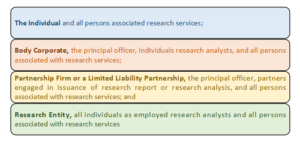
- 3. Other Criteria
- Deposit Requirement: The applicant must meet the deposit requirements specified in Regulation 8 of SEBI RA Regulations, 2014.
- Fit and Proper Criteria: The applicant, must be “fit and proper” as per the criteria listed in Schedule II of the SEBI (Intermediaries) Regulations, 2008.
- Adequate Infrastructure: The applicant must have suitable infrastructure to effectively carry out research analyst activities.
- Past Refusal of Registration: If the applicant or any connected person has previously been refused registration by SEBI, the reasons for such refusal will be considered.
- Disciplinary History:Any past disciplinary action by SEBI or other regulatory authorities against the applicant or connected persons will also be examined.
- Enlistment with a Recognised Body: The applicant must be enlisted with a body or body corporate recognised by SEBI under Regulation 14 of SEBI RA Regulations, 2014.
- III Which exam should I take to become a SEBI Registered Research Analyst?
- For becoming a SEBI registered research analyst:
- i. You must pass the NISM Series-XV: Research Analyst Certification Examination(Exam is held at Test Centre).
- ii. The certificate awarded upon successful completion is valid for three years.
- iii. To continue practising as a research analyst, it is mandatory to renew the certificate before its expiry. You can do so either by passing the NISM Series-XV: Research Analyst Certification Examination again or by clearing the NISM Series XV-B: Research Analyst Certification (Renewal) Examination(Exam is remotely proctored).
- IV How can I register for the NISM Research Analyst exam?
- V. What topics are covered in the NISM Research Analyst exam?
- The NISM-Series-XV: Research Analyst Certification Examinationestablishes a minimum knowledge benchmark for individuals registered as Research Analysts under SEBI RA Regulations, 2014. The certification examination workbook covers essential topics such as:
- Basics of Indian securities markets and key financial terminologies
- Fundamental research approaches (top-down and bottom-up)
- Microeconomic and macroeconomic analysis
- Company analysis (qualitative and quantitative)
- Risk, return, and valuation principles
- Corporate actions and regulatory framework
- Guidelines for writing effective research reports
The NISM Series XV-B: Research Analyst Certification (Renewal) Examination Examination includes advanced topics like:
- Accounting quality assessment and red flag identification
- Valuation catalysts and market trend analysis
- Technical analysis and value migration in equity markets
- Overview of derivatives and commodities markets
VI. How do I apply to SEBI for research analyst registration?
- After clearing the above-mentioned NISM exam, you need to:
- i. Prepare necessary documents (application form, certificates, KYC, etc.)
- ii. Submit an application on SEBI’s intermediary portal: https://siportal.sebi.gov.in/intermediary/index.html
- iii. Pay the applicable registration fee, subject to 18% GST.
- iv. Await SEBI’s verification and approval.
- v. For Self-Registration, click here.
VII. What are the key responsibilities of a SEBI registered research analyst?
- As per Regulation. 2(1) (wa) of SEBI RA Regulations, 2014, Research Analyst must perform Research Services such as:

Apart from the above, a research analyst must follow the Code of Conduct and Practices as specified by SEBI.
VIII. Is it mandatory to register with SEBI to work as a research analyst in India?
- Yes As per SEBI RA Regulations, 2014, any Person and Entity offering research services in securities markets must be registered with SEBI.
IX. Where can I get more help and updates?
- You can visit the official websites:
- i. SEBI – www.sebi.gov.in
- ii. NISM – https://www.nism.ac.in/certifications/
Author: Dr. Kiranjit Kaur Kalsi,
Sr. Assistant Manager – Centre for Content Creation
